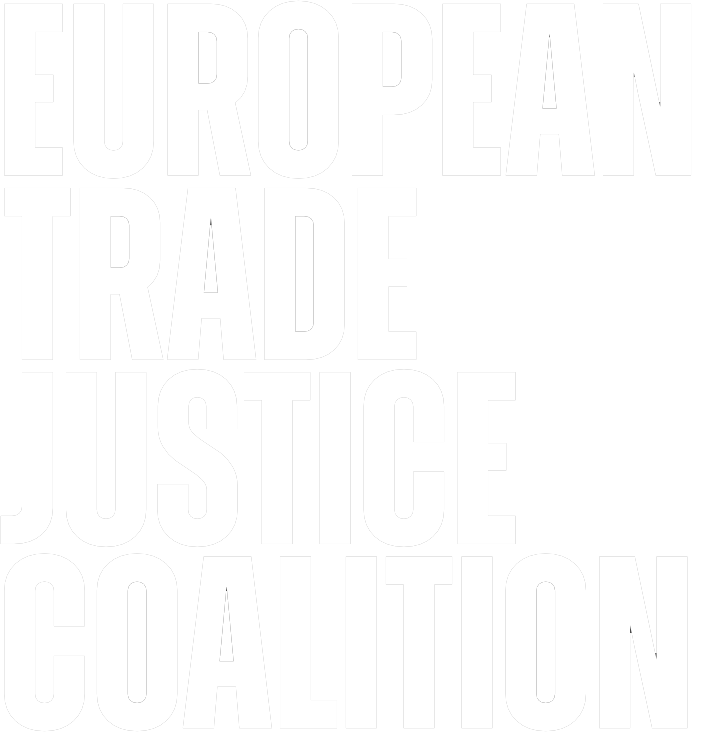
Vulture funds cashing in on a bank bailout
Suffolk and others vs Portugal
Thousands of people lost their life savings in 2014 when one of Portugal’s largest private banks collapsed, and was rescued by the state. Mailbox subsidiaries of two US-based hedge funds are now suing Portugal over its handling of their loans during the bank’s restructuring, using the country’s bilateral investment treaty with Mauritius. Much of the case remains secret, but there are signs that the funds actually acquired the loans of the troubled bank with the intention of later suing for much more in compensation than they had paid when acquiring them. If Portugal loses, any payment to the hedge funds would add to the eight billion euro[1] that the banking crisis has already cost the public purse.
“They killed our savings, now it’s time for justice,” reads the inscription on a bus parked outside Lisbon’s Central Criminal Court in October 2024.[2] After a ten-year investigation, the biggest trial dealing with the implosion of the Espírito Santo banking empire begins. Protestors have come to draw attention to the many people who lost their life savings during the bank’s collapse, and have not yet been compensated.
The trial’s main defendant is Espírito Santo’s ex-chief Ricardo Salgado, during whose term the bank racked up billions in debt. He is accused of massive fraud and corruption. It still haunts the collective memory of the Portuguese that the public paid for his crimes through the bank bailout. Meanwhile ordinary people suffered wage and pension cuts, and other harsh austerity measures imposed on Portugal during its debt crisis.
“I am 81 years old. Those were savings from half a century of work.”
Elisa Sousa, who lost her savings when Banco Espírito Santo collapsed[3]
For Francisco Carvalho, a victim of the banking scandal, the trial “is the rekindling of a hope”. “We believe justice can be slow, but it is profound. We believe a lot in Portuguese justice. We believe in this court,” he said at the trial opening.[4] A crime like Banco Espírito Santo’s massive fraud should never happen again.
Litigious vulture funds profit from bad loans
However, some vulture fund investors, which claim to have also lost money during the banking crisis, have less faith in Portugal’s judiciary. Or rather: they prefer to use a legal regime that is tilted in favour of investor interests.
In October 2022, three Mauritius-based subsidiaries of US hedge funds Elliott and Silver Point Capital sued Portugal in an investor-state dispute settlement (ISDS) tribunal.[5] They argue that the Portuguese authorities failed to pay compensation in line with key EU principles for banking resolutions, after they split Banco Espírito Santo in two and left the claimants’ loans with the ʻbad’ part of the bank.[6]
Both funds are notorious for their “vulture fund” business model: they buy the debt of struggling countries and companies at steep discounts, only to later sue, seeking to be repaid the full value of the debt. Through this exploitative strategy, Elliott, which is run by US-billionaire Paul Singer, has extracted huge profits from countries experiencing financial crises, like Argentina, Peru and the Congo.[7] Today, Elliott controls $72.7 billion in assets globally[8] – equivalent to over a quarter of Portugal’s GDP ($289.11 billion in 2023[9]).
“Vulture funds see states as cash machines.”
Benjamin Lemoine, sociologist [10]
VIP justice for the rich, but not for citizens
“The two American funds don’t want to be treated like the other creditors and be subject to what the justice system of a state governed by the rule of law concludes,” writes TROCA, a Portuguese citizens collective fighting for fair international trade rules.[11] Instead, the hedge funds “prefer ‘VIP treatment’, which is why they have opted to use the ‘VIP Courts’”.[12] Unlike the vulture funds, the many citizens who lost their savings and have not yet been able to recover their losses do not have access to a parallel private-courts regime.
The legal basis for the funds’ ISDS claim is the bilateral investment treaty (BIT) that Portugal and Mauritius signed in 1997. It gives sweeping powers to investors from both states when they invest in the other country, including the peculiar privilege to directly sue the country outside of its domestic courts, and to choose half of the tribunal members – the three private lawyers who decide the case.
A roundtrip to Mauritius: was the case planned from the start?
There are other striking details about this case. Notably, the hedge funds acquired their loans in Banco Espírito Santo – for an unknown sum, from banking giant Goldman Sachs – very late. They purchased them in July 2014 (Silver Point Capital) and October 2014 (Elliott) – at the height of the bank’s crisis, or in the second case even after the authorities had announced its resolution in August 2014. Experienced investors like the two hedge funds must have known that these loans were at a particularly high risk of not being repaid. The funds’ subsidiaries in Mauritius got involved even later, when the loans were transferred to them by their parent groups in 2016.[13]
The subsidiaries also appear to be little more than shell companies, with no real economic activity or effective management in Mauritius. They are “mere paper façades or mailbox companies for foreign entities to conduct their own business,” the Portuguese government claims.[14] According to the Mauritian subsidiaries themselves they “do not employ individuals and/or independent contractors for their day-to-day operational activities”.[15]
“The Claimants committed an abuse of process by initiating a corporate restructuring with the aim of benefiting from BIT protection at a time when the dispute already existed or was reasonably foreseeable.”
Portuguese government[16]
This could mean that, as per the business model of vulture funds, Elliott and Silver Point Capital acquired the Banco Espírito Santo loans with the express intention of later profiting from lawsuits seeking high amounts in compensation. In the hope of getting access to the corporate-friendly private ISDS justice system, they then redistributed the loan to mailbox companies in Mauritius, with which Portugal has signed an investment treaty. Such a detour was required, as there is no such treaty enabling VIP courts between the US and Portugal.
Corporate bias in ISDS tribunals
It is common for investors and their lawyers to engage in what is euphemistically called “investment treaty planning” or “investment (re-)structuring”. This involves companies structuring their investments through a vehicle in a third country so that they can benefit from investment treaty protections.
A 2020 study shows that this trick is considered acceptable and legal by nearly two thirds (64 per cent) of ISDS tribunals who have looked into the issue, often relying on the treaties’ open-ended definitions of terms like “investor” or “investment”.[17]
Nevertheless, the Portuguese government has asked the tribunal to reject the case as abusive. The tribunal has agreed to look into the issue, and a hearing took place in January 2025.[18] At the time of writing (July 2025), no further timeline or update on proceedings was available, and hardly anything else was known about the lawsuit. All written submissions by the Portuguese government and the claimant investors have been kept secret.
However, if the arbitrators bar the case from moving forward, they won’t earn the handsome fees that they would make if the proceedings continue. In a one-sided system where only investors can sue and rulings don’t come from independent judges with a fixed salary, but from for-profit arbitrators who are paid by the case, there are strong incentives to decide in favour of the claimant investors. Siding with them will bring more lawsuits, fees and prestige in the future, regardless of the costs to citizens and the public purse.
[1] Lusa – Business News – Portugal: The fall of BES/GES to the trial – chronology, AMAN, 14 October 2024.
[2] Lesados do BES usam carro funerário para protesto junto ao tribunal, Diário de Notícias, 15 October 2024.
[3] Alexandra Tavares-Teles: Lesados do BES. “Não há dinheiro que pague esta tragédia”, Diário de Notícias, 19 October 2024.
[4] Lesados do BES usam carro funerário para protesto junto ao tribunal, Diário de Notícias, 15 October 2024.
[5] ICSID: Suffolk (Mauritius) Limited, Mansfield (Mauritius) Limited and Silver Point Mauritius v. Portuguese Republic (ICSID Case No. ARB/22/28).
[6] The claim is not public, but the procedural orders from the proceedings summarise parts of the claimants’ arguments. See, for example: ICSID: Suffolk (Mauritius) Limited, Mansfield (Mauritius) Limited and Silver Point Mauritius v. Portuguese Republic (ICSID Case No. ARB/22/28). Procedural Order No 4. Requests for document production, 8 August 2024, p. 61.
[7] See, for example: Hedge Clippers: Paul Singer: Vulture Fund Pioneer, 7 April 2015; Renae Merle: How one hedge fund made $2 billion from Argentina’s economic collapse, Washington Post, 29 March 2016.
[8] Elliott: About Elliott.
[9] World Bank Group: GDP (current US$) – Portugal.
[10] Apolline Guillot: “Vulture funds see states as cash machines”. Interview with sociologist Benjamin Lemoine, Philonomist, 13 November 2024.
[11] Remarkably, the funds are also suing Portugal in its domestic courts. Together with other investors, the three Mauritius-based subsidiaries (Suffolk, Mansfield and Silver Point Mauritius) and their parent companies (Elliott Management and Silver Point Capital) filed a lawsuit in the Lisbon administrative court in 2020. While they argue that the domestic proceedings have a different focus than the ISDS claim, the Portuguese government considers both to be “fundamentally the same”. The ISDS tribunal will assess whether that is the case. If the tribunal agrees with the government’s assessment it would not be allowed to accept the – duplicative – ISDS claim. See: ICSID: Suffolk (Mauritius) Limited, Mansfield (Mauritius) Limited and Silver Point Mauritius v. Portuguese Republic (ICSID Case No. ARB/22/28). Procedural Order No 3. Respondent’s Request for Bifurcation, 1 March 2024, paras 32 and 73ff.
[12] Troca: O primeiro caso ISDS contra Portugal, 6 March 2023.
[13] This conclusion can be drawn from documents which are part of the case, see: ICSID: Suffolk (Mauritius) Limited, Mansfield (Mauritius) Limited and Silver Point Mauritius v. Portuguese Republic (ICSID Case No. ARB/22/28). Procedural Order No 4. Requests for document production, 8 August 2024, pp. 123 and 129.
[14] ICSID: Suffolk (Mauritius) Limited, Mansfield (Mauritius) Limited and Silver Point Mauritius v. Portuguese Republic (ICSID Case No. ARB/22/28). Procedural Order No 4. Requests for document production, 8 August 2024, p. 122f.
[15] Ibid., p. 153.
[16] ICSID: Suffolk (Mauritius) Limited, Mansfield (Mauritius) Limited and Silver Point Mauritius v. Portuguese Republic (ICSID Case No. ARB/22/28). Procedural Order No 3. Respondent’s Request for Bifurcation, 1 March 2024, para 10e.
[17] Ed Poulton et al.: Empirical Study: Corporate Restructuring and Investment Treaty Protections, BIICL and Baker McKenzie, 2020, p. 4.
[18] ICSID: Suffolk (Mauritius) Limited, Mansfield (Mauritius) Limited and Silver Point Mauritius v. Portuguese Republic (ICSID Case No. ARB/22/28). Procedural Order No 3. Respondent’s Request for Bifurcation, 1 March 2024.






